.NET Tools
Essential productivity kit for .NET and game developers
The Developer Ecosystem in 2023: Key Trends for C#
We’ve captured insights from 26,348 developers worldwide in our annual Developer Ecosystem Survey 2023. This recap focuses on C# and .NET, but you can see what’s trending in other languages as well. Enjoy the results and commentary, and let us know what you think!
Top Discoveries
We know that ASP.NET Core is the most used .NET framework by C# developers – 56% use it. But Blazor just simply hasn’t had the uptake that Microsoft was hoping for. Blazor Server is only 16% of the ASP.NET development landscape with Blazor WebAssembly at 12%. More developers use the Minimal API feature (20%), released after Blazor. So for full-stack and frontend development we’re at 64% of ASP.NET devs using MVC and 40% using Razor Pages.
While Aspire has just been released and is too new to be included in this survey, we’re keeping an eye on it to see what happens in the next year. Microsoft is going full force with the message “With .NET 8, every developer is a full stack developer (in the cloud)”.
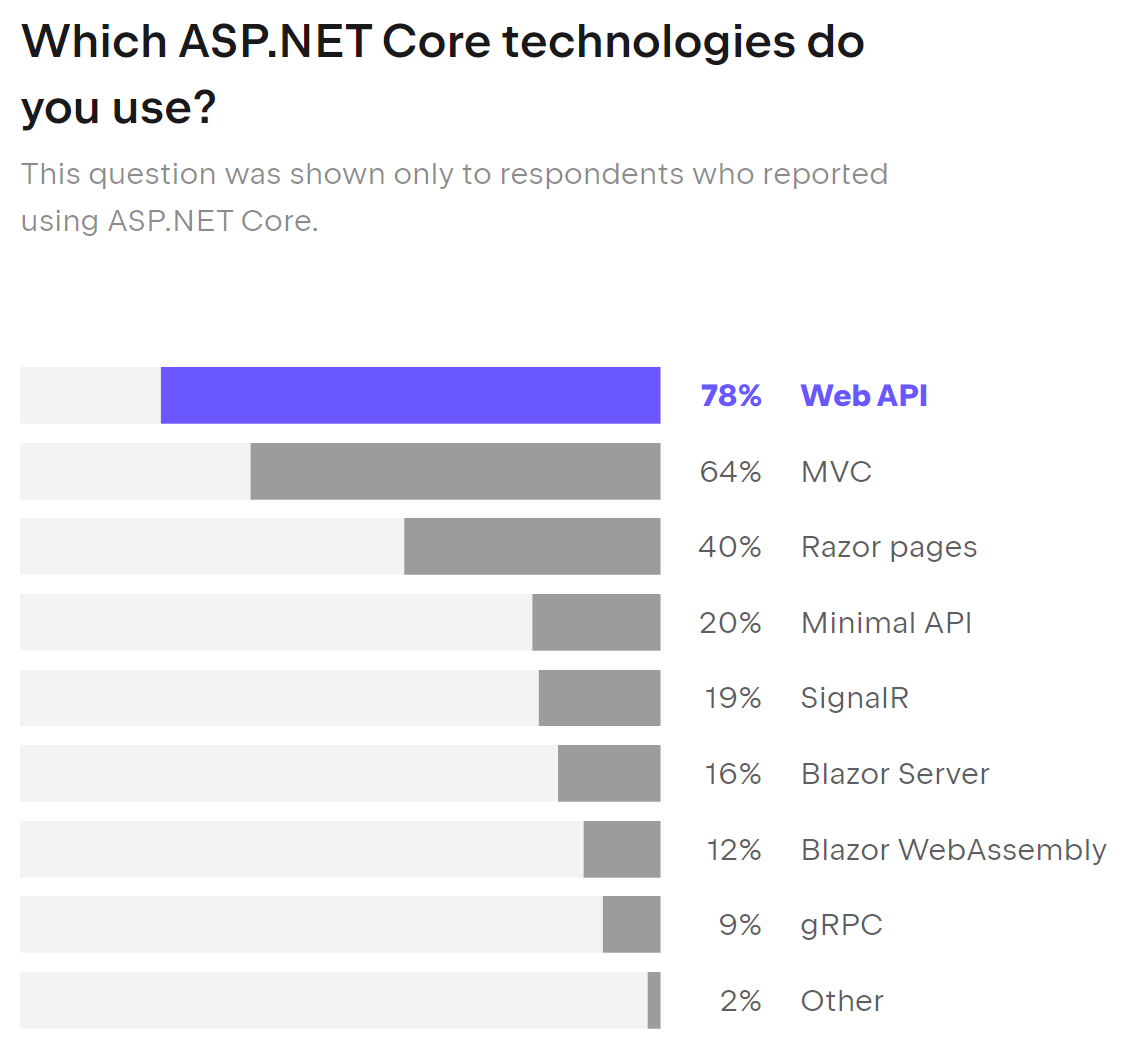
C# developers mostly run Windows and keep up to date.
This should come as no surprise: 79% of C# developers are using Windows, followed by 32% on MacOS and 19% on Linux. As new C# versions are released, there is steady adoption, as versions 11 and 10 are at 42% and 32%, respectively. As well, a smaller but significant number of legacy apps always stay behind, often for good reasons. Since 2017, C# developers who say “I’m not sure” about which version of C# they use have steadily grown in number.
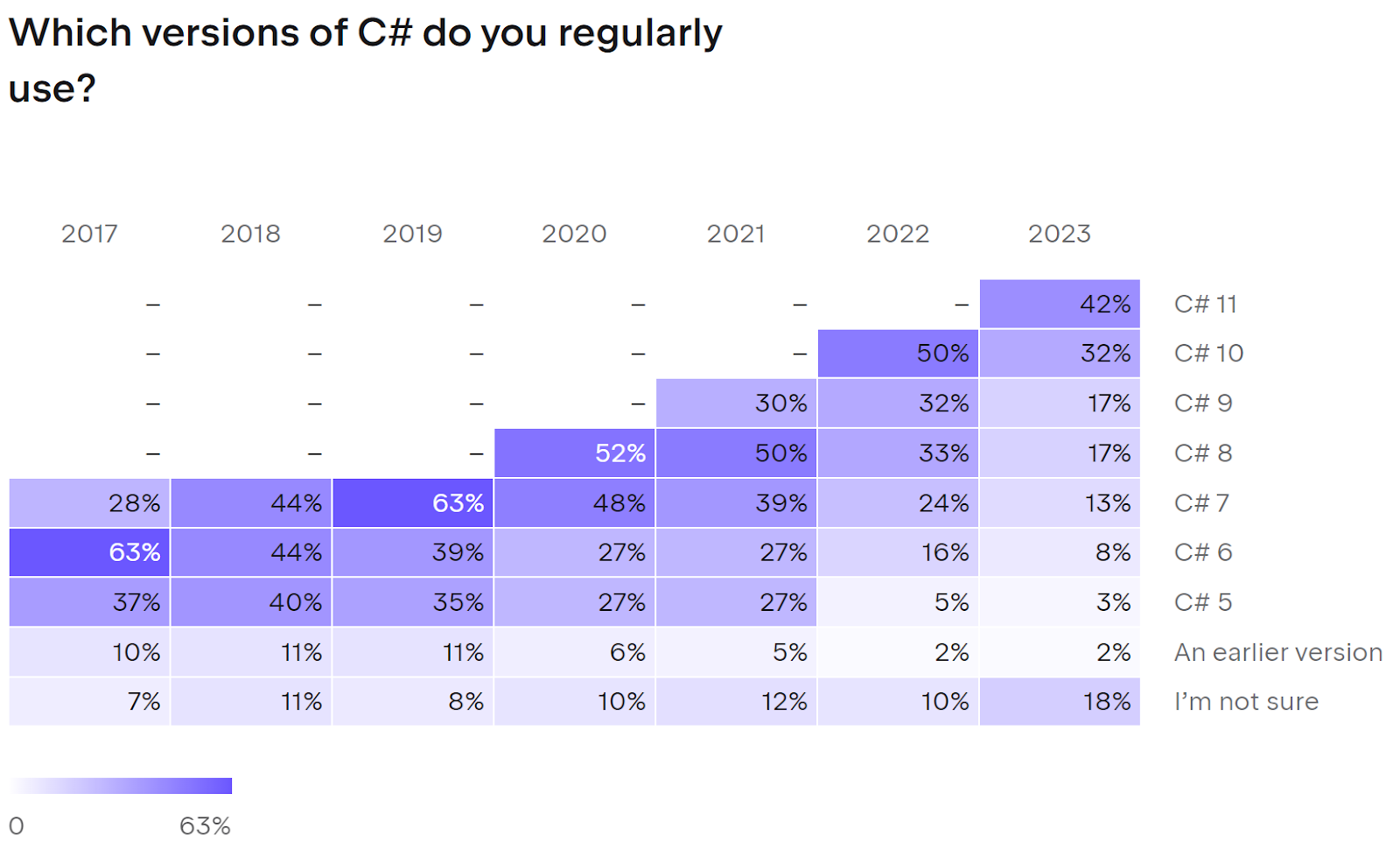
C# developers build games, websites, utilities
We looked at Rider and Visual Studio users developing in C#.
In the past year there’s been quite a boost in game developers working in Rider. Rider is a certainly favorite amongst Unity, Unreal Engine, and Godot developers. Meanwhile, the rest of the .NET ecosystem hasn’t had any drastic changes. Websites, utilities, and libraries still rule .NET, as .NET is firmly rooted in enterprise software.

IDEs, Editors, and Plugins
Visual Studio remains as the most popular IDE but 32% of Visual Studio users use ReSharper. 32% of C# devs use Rider, and 14% VSCode. Most of VSCode’s use comes from the C# plugins and .NET Tools. CoPilot is also popular among VSCode users – 25% said they use the plugin.
Since it was announced late in the year, the results aren’t quite captured in this survey. Microsoft’s choice to retire Visual Studio for Mac means that most of the Visual Studio for Mac users have moved over to Rider.
1% of respondents say they don’t use any of the popular IDEs. They say “Other”. Are these the hard core Notepad folks? I knew they were out there somewhere!
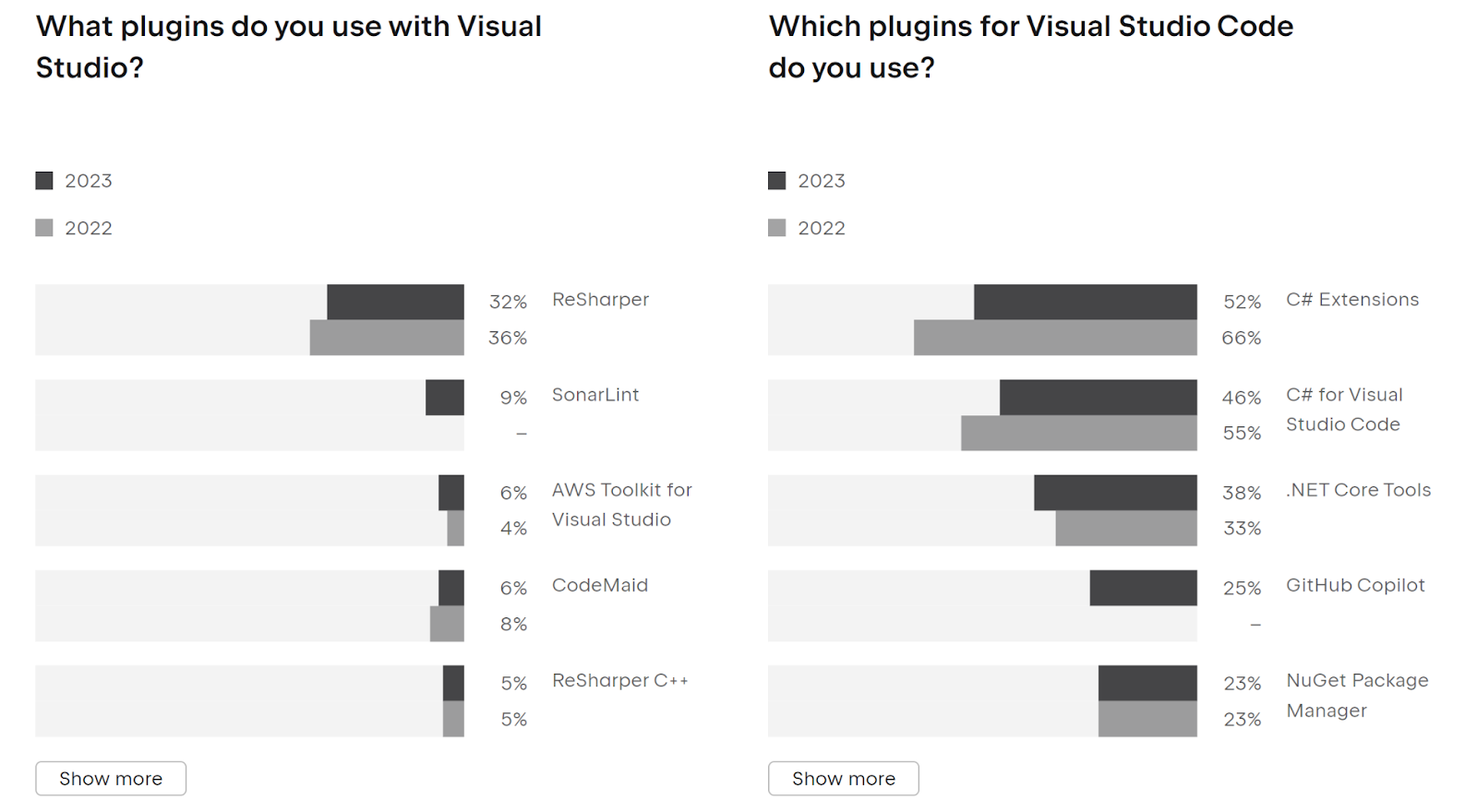
Unit Tests
At this point, what can one say? It’s not news, so let’s just face it. Every year the same phenomenon happens – there is a significant amount of developers who just don’t test. For those who do, xUnit and nUnit have maintained their spots as the top two choices.
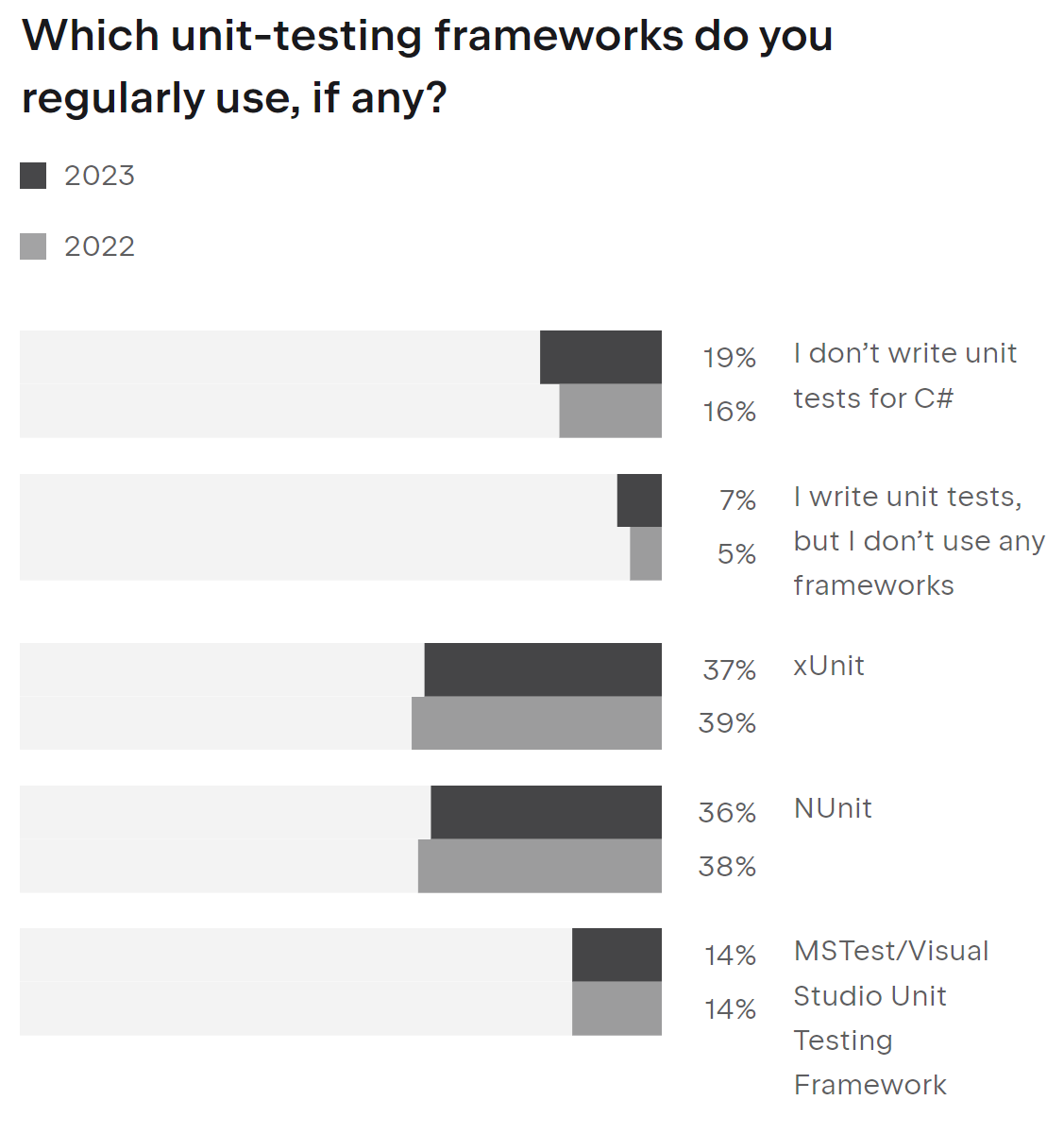
Profiling and diagnostics
Profiling is often left to roughly 20% of the people on development teams, and when asked about a third of those say it’s up to themselves or just a few teammates to do the profiling. As is such, profiling and diagnostics remain a bit of a specialty. Our tools are easy to use, but making sense of the data in the context of your application is the challenging part.
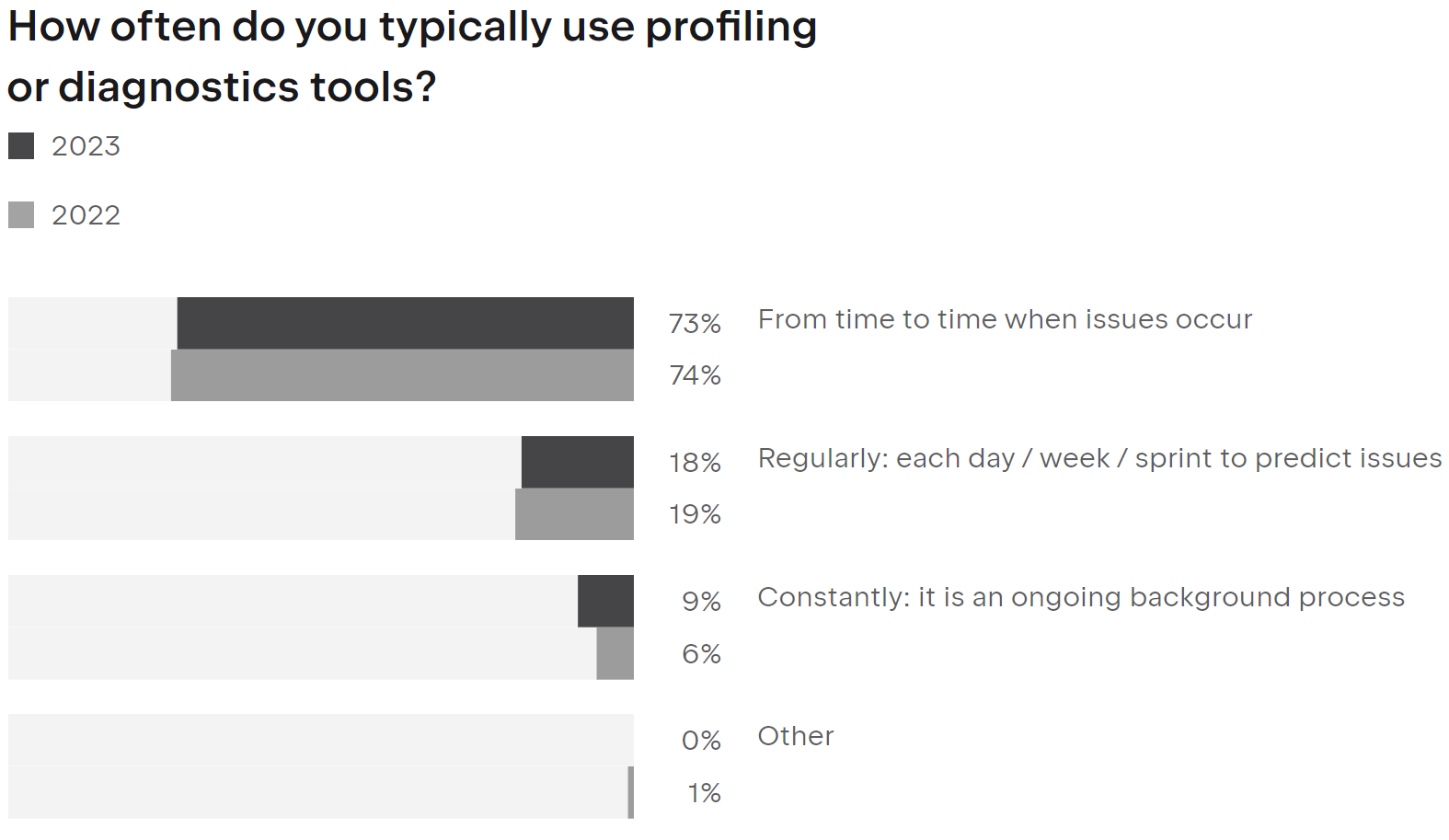
Summary
There are several stable trend lines in .NET. One such trend is the ongoing adoption of new versions of C#. A first wave adopts, then more folks upgrade later. Unit testing, types of software developed, and profiling are also similar in number year over year. A noticeable trend is that as more .NET Framework and C# versions are released, more folks are unsure of their currently used C# version.
Subscribe to a monthly digest curated from the .NET Tools blog:













